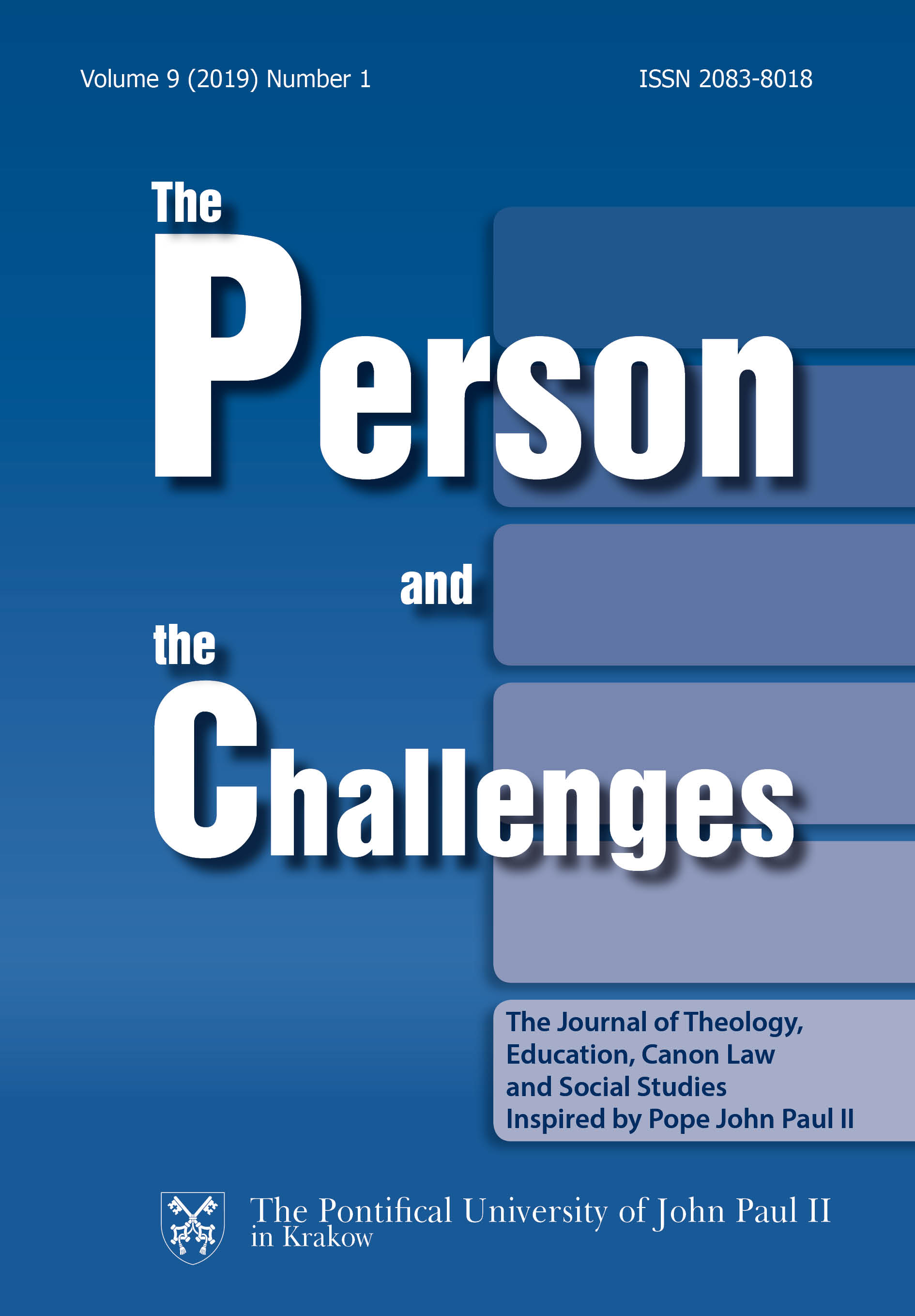Mieczysław Kotlarczyk – a Teacher and Artistic Friend of John Paul II
DOI:
https://doi.org/10.15633/pch.3365Słowa kluczowe:
John Paul II, Karol Wojtyła, Mieczysław Kotlarczyk, Communism, communist secret service of the Polish People’s Republic, Rhapsodic TheatreAbstrakt
Mieczysław Kotlarczyk played an important role in the life of Pope John Paul II. The spiritual bond between friends born in the same city exerted a significant impact on both their lives and work. And yet it remains unknown to the public, just as Kotlarczyk himself. Raised in a theatre-related family, Kotlarczyk remained affiliated with the theatre throughout his life. This paper presents his life path and the fate of the Rhapsodic Theatre, which Kotlarczyk was managing from 1941, and which operated under the auspices of the “Unia” (“Union”) underground organization. After World War II, despite reprisals from the communist authorities and the subordination to thesecret service, Kotlarczyk tried to continue his activity. In 1953, the Rhapsodic Theatre was liquidated by the authorities. Even though in 1957, as part of the so-called thaw, there was a consent to reactivate the theatre, ten years later however, it was definitely shut down. Among those protesting against the decision, was Karol Wojtyła, the then Archbishop of Kraków.
Bibliografia
AIPN Kr 010/1191, pdf, The record-and-watch case codenamed “Łącznik” (“The Liaison Officer”).
AIPN Kr 075/69, v. 2, The subject case codenamed „Dzwon” („The Bell”).
Ciechowicz J., Dom opowieści. Ze studiów nad Teatrem Rapsodycznym Mieczysława Kotlarczyka, Gdańsk 1992.
Dziedzic S., Rapsodyczny „płaszcz niewyżebrany” Mieczysława Kotlarczyka, „Annales Universitatis Paedagogicae Cracoviensis. Studia Historico litteraria 12”, Kraków 2012.
Dziedzic S., Romantyk Boży, Kraków 2014.
Jan Paweł II, Dar i tajemnica, image 2, Kraków 2005.
Jasień P. [real name K. Wojtyła], O teatrze słowa, „Tygodnik Powszechny” (1952), no 11 (16 III).
Koczwańska-Kalita D., „Nie ma narodu polskiego, kolego Kotlarczyk!” Walka komunistów z Teatrem Rapsodycznym, „Arcana” (2005), no 63.
Kotlarczyk M., Reduta słowa. Kulisy dwu likwidacji Teatru Rapsodycznego w Krakowie (karty z pamiętnika), Londyn 1980.
Kotlarczyk M., Wojtyła K., O Teatrze Rapsodycznym. 60-lecie powstania Teatru Rapsodycznego, preface and selection of texts by J. Popiel, selectedtexts T. Malak, J. Popiel, Kraków 2001.
Kotlarczyk J., Kotlarczyk-Mrozowa J., Mróz-Krysta D., Wadowickie teatry, teatrzyki i idee Mieczysława Kotlarczyka, „Wadoviana” (2015), no 18.
Kotlarczyk S., ….Z doby dzisiejszej. Za Matkę Ojczyznę, Wadowice 2007.
Kowalewski S., Apostoł Żywego Słowa, „Niedziela” (2003), no 9.
Kwiatkowska H., Porachunki z pamięcią, Kraków 2002.
Malak T., Karol Wojtyła a TeatrRapsodyczny, „Ethos”, R. 20, no 1/2 (2007).
Michałowska D., Pamięć nie zawsze święta. Wspomnienia, Kraków 2004.
Popiel J., Karol Wojtyła i Mieczysław Kotlarczyk. Historia artystycznej przyjaźni, „Ethos”, v. 20, no 1/2 (2007).
Popiel J., Los artysty w czasach zniewolenia. Teatr Rapsodyczny 1941-1967, Kraków 2006.
„…trzeba dać świadectwo” 50-lecie powstania Teatru Rapsodycznego w Krakowie, selection of texts, comments and footnotes by D. Michałowska, Kraków 1991.
An interview with DanutaMichałowska conducted by The Centre for the Thought of John Paul II, http://www.centrumjp2.pl/wikijp2/index.php?title=Mieczys%C5%82aw_Kotlarczyk (13.08.2018).
Pobrania
Opublikowane
Numer
Dział
Licencja
Prawa autorskie (c) 2019 Cecylia Kuta

Utwór dostępny jest na licencji Creative Commons Uznanie autorstwa 4.0 Międzynarodowe.
Autorzy publikujący w czasopiśmie udzielają jego wydawcy zgody o następującej treści:
- Autor zachowuje autorskie prawa majątkowe do utworu, a jednocześnie udziela wydawcy czasopisma zgody na jego pierwszą publikację w wersji drukowanej i wersji online na licencji Creative Commons Uznanie autorstwa 4.0 Międzynarodowe oraz zgody na wykonywanie opracowań, w tym przekładów.
- Autor ma możliwość udzielania zgody niewyłącznej na opublikowanie utworu w wersji, która ukazała się w czasopiśmie (np. zamieszczenia go w repozytorium instytucjonalnym lub opublikowania w książce), wraz z informacją o jego pierwszej publikacji w czasopiśmie.
- Autor może umieścić swój utwór online (np. w repozytorium instytucjonalnym lub na swojej stronie internetowej) jeszcze przed zgłoszeniem utworu do czasopisma.

